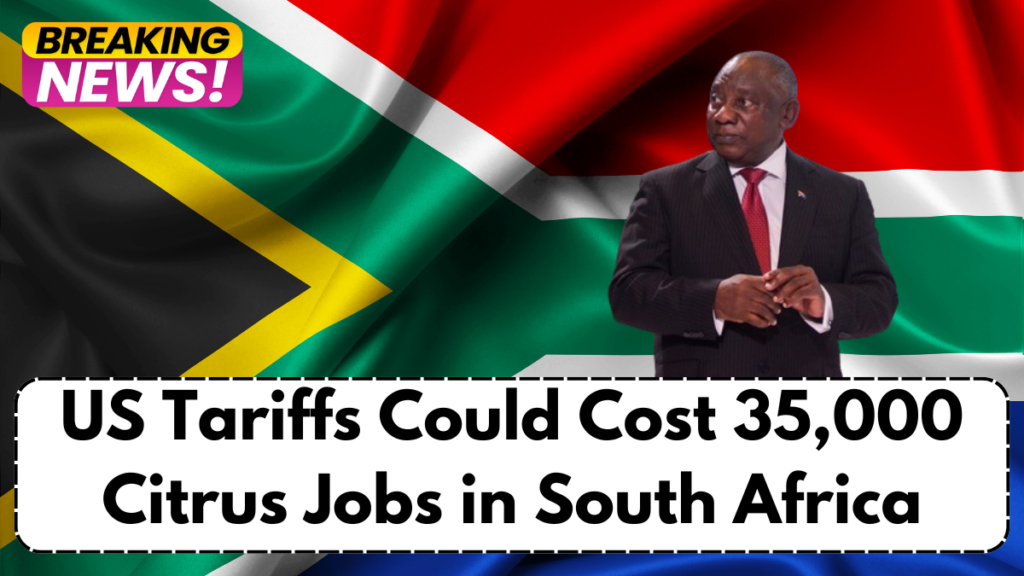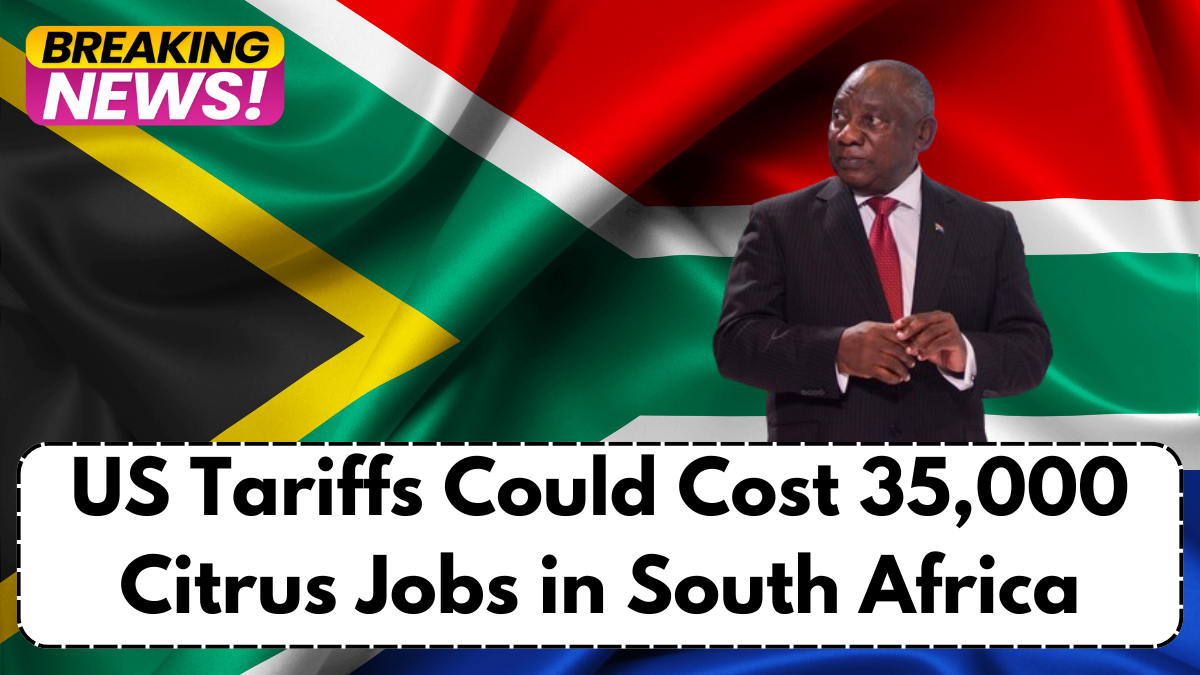In April 2025, the South African citrus industry is facing a major crisis following the enforcement of import tariffs by the United States. Originally announced by former President Donald Trump in early April 2024, the tariffs include a blanket 10% duty on all imports, with an elevated 31% specifically targeting citrus imports from South Africa. These measures are now in full effect and are threatening the livelihood of thousands of workers and exporters in the country.

Citrus Industry Contribution to South Africa’s Economy
South Africa is the world’s second-largest citrus exporter, only behind Spain. The country exports approximately 5% to 6% of its total citrus yield to the United States, generating more than $100 million in revenue annually. These exports are vital not only to the national economy but also to rural communities that depend heavily on agricultural income.
Table: Key Facts – South African Citrus and U.S. Tariff Impact
| Category | Data / Information |
|---|---|
| U.S. Tariff Imposed | 31% on citrus from South Africa |
| Total U.S. Citrus Export Volume | 5%–6% of South Africa’s citrus yield |
| Annual Revenue from U.S. | $100+ million |
| Added Cost Per Carton | $4.50 (due to new tariff) |
| Jobs at Risk | 35,000 |
| Affected Regions | Citrusdal and similar towns in Western Cape |
| Trade Program Affected | African Growth and Opportunity Act (AGOA) |
| Tariff Implementation Date | April 2, 2024 (Now impacting 2025 trade) |
| Expiry of AGOA | September 2025 |
Local Communities at Risk
Rural areas such as Citrusdal in the Western Cape are particularly vulnerable. These towns rely heavily on citrus farming for employment and economic stability. Gerrit van der Merwe, Chairperson of the Citrus Growers’ Association of Southern Africa (CGA), emphasized the urgency of the matter, stating that these tariffs may lead to widespread job losses or, worse, full economic collapse in citrus-reliant towns.
Farmer Concerns and Industry Response
Citrus growers have started packing shipments for the 2025 export season, but the additional $4.50 cost per carton significantly undermines their competitiveness in the U.S. market. South African exporters fear they’ll lose their market share to countries not subject to such tariffs, leading to reduced income and potential layoffs.
The CGA has publicly appealed to the South African government, urging them to initiate immediate negotiations with U.S. authorities to seek either a tariff exemption or reduced rates for citrus imports.
Diplomatic and Trade Implications
Rather than responding with retaliatory tariffs, the South African government is taking a diplomatic approach. As of April 2025, it is in active discussions with U.S. trade officials to secure exemption clauses or new quota-based trade agreements.
The broader concern lies in how these tariffs essentially undermine the African Growth and Opportunity Act (AGOA), a U.S. trade program designed to provide duty-free access to African countries. With AGOA set to expire in September 2025, these tariff changes are seen as a significant blow to its original purpose.
Conclusion
The continuation of elevated U.S. tariffs on South African citrus imports poses a severe threat to the country’s economy and its agricultural workforce. With 35,000 jobs hanging in the balance and critical export towns at risk, urgent diplomatic engagement is essential. The government must act swiftly to negotiate relief or exemptions before the full harvest season unfolds and long-standing trade partnerships are eroded.
FAQs
What are the current U.S. tariffs on South African citrus?
As of April 2025, the U.S. has imposed a 31% tariff specifically on citrus products imported from South Africa. This is in addition to a baseline 10% tariff on general imports.
How much citrus does South Africa export to the U.S.?
South Africa exports around 5% to 6% of its total citrus production to the United States, earning over $100 million annually from this trade.
How are South African citrus farmers being affected?
The increased tariffs have made South African citrus less competitive in the U.S. market. This may lead to reduced sales, job losses, and economic stress in rural citrus-producing regions.
What is the South African government doing in response?
The government is pursuing diplomatic negotiations with the U.S. to secure tariff exemptions or more favorable trade terms, rather than retaliating with its own tariffs.
What is AGOA and how is it related?
The African Growth and Opportunity Act (AGOA) is a U.S. trade initiative that provides duty-free access to eligible African countries. The new tariffs undermine the benefits South Africa had under this agreement, which is set to expire in September 2025.
For More Information Click Here
Pari is a passionate writer known for captivating stories that blend imagination and reality. Inspired by travel, history, and everyday moments, Pari crafts narratives that resonate deeply with readers.




